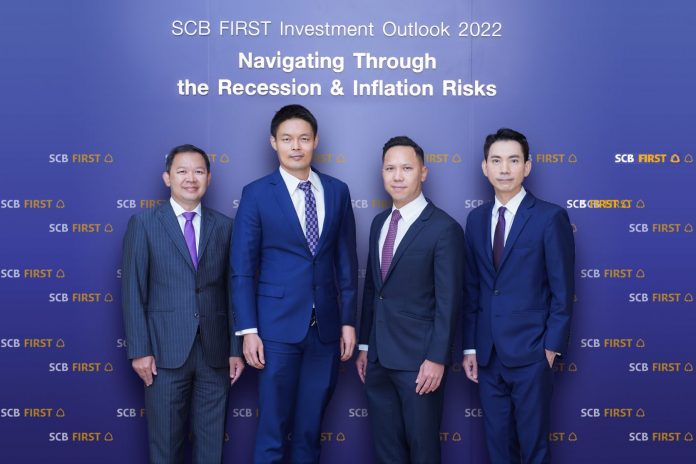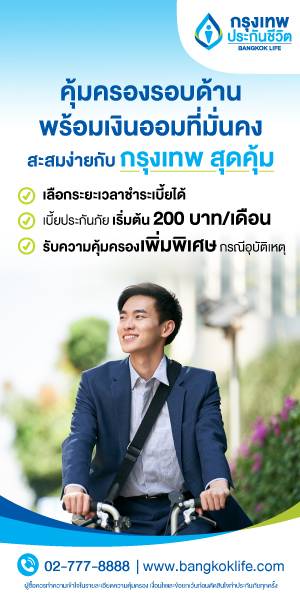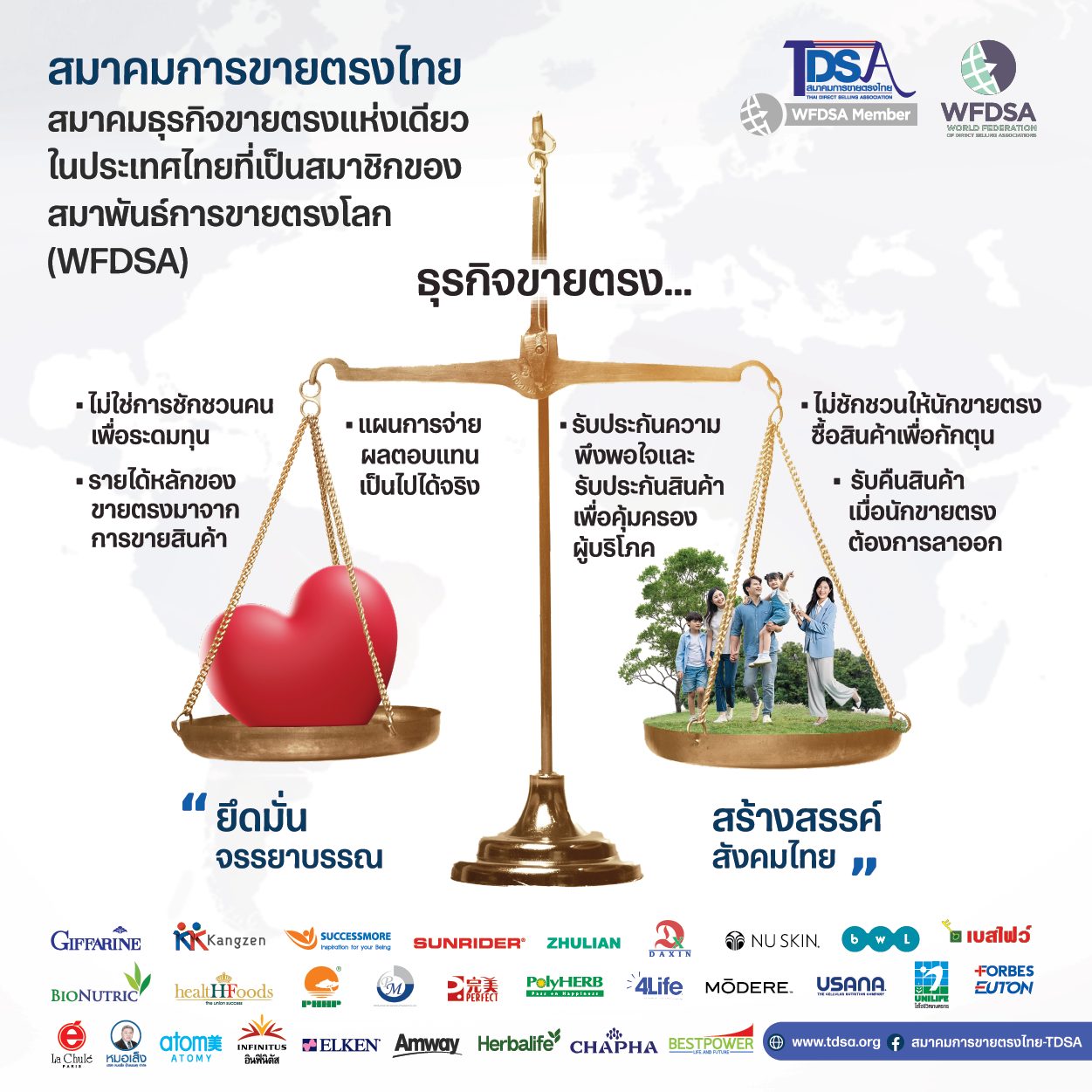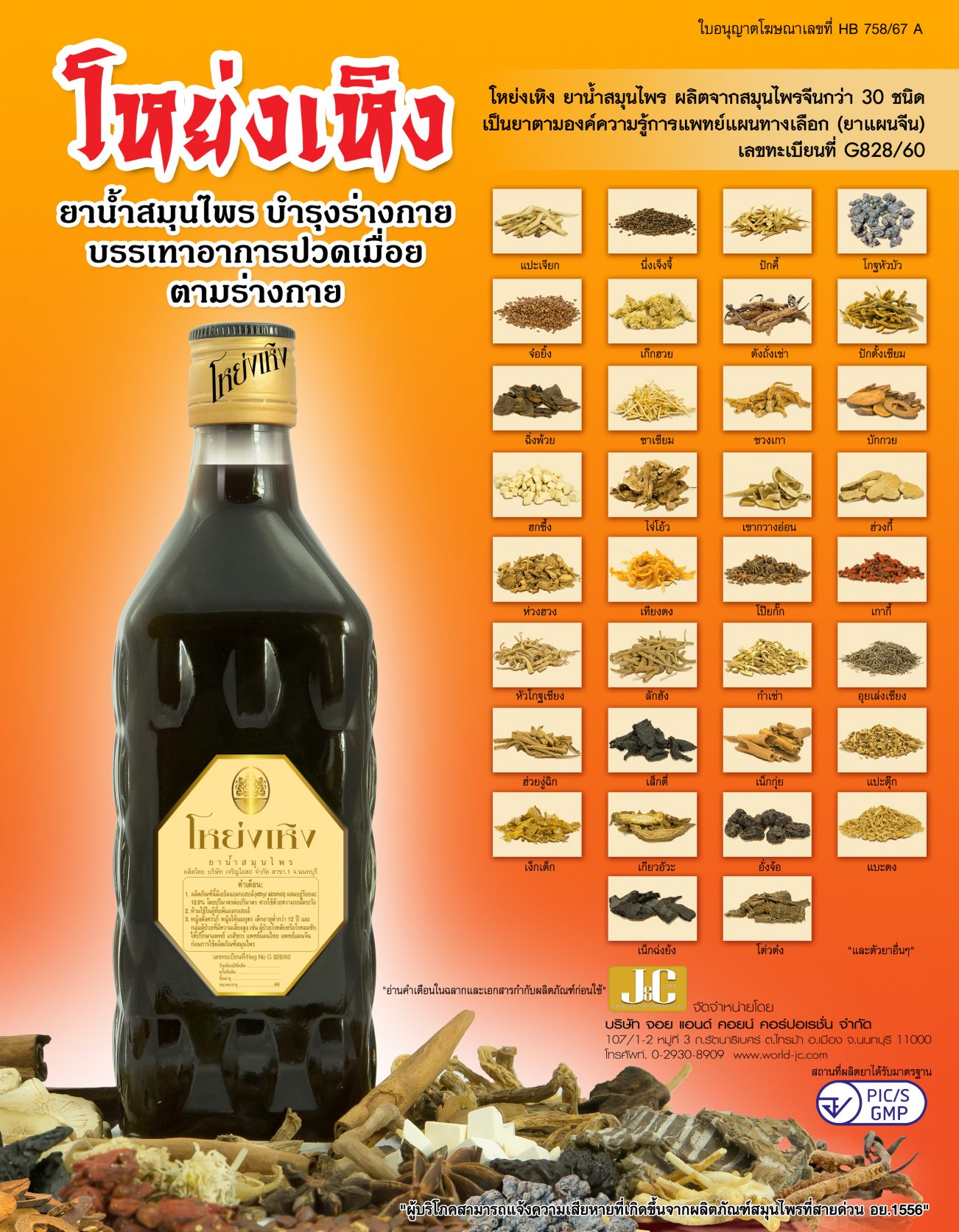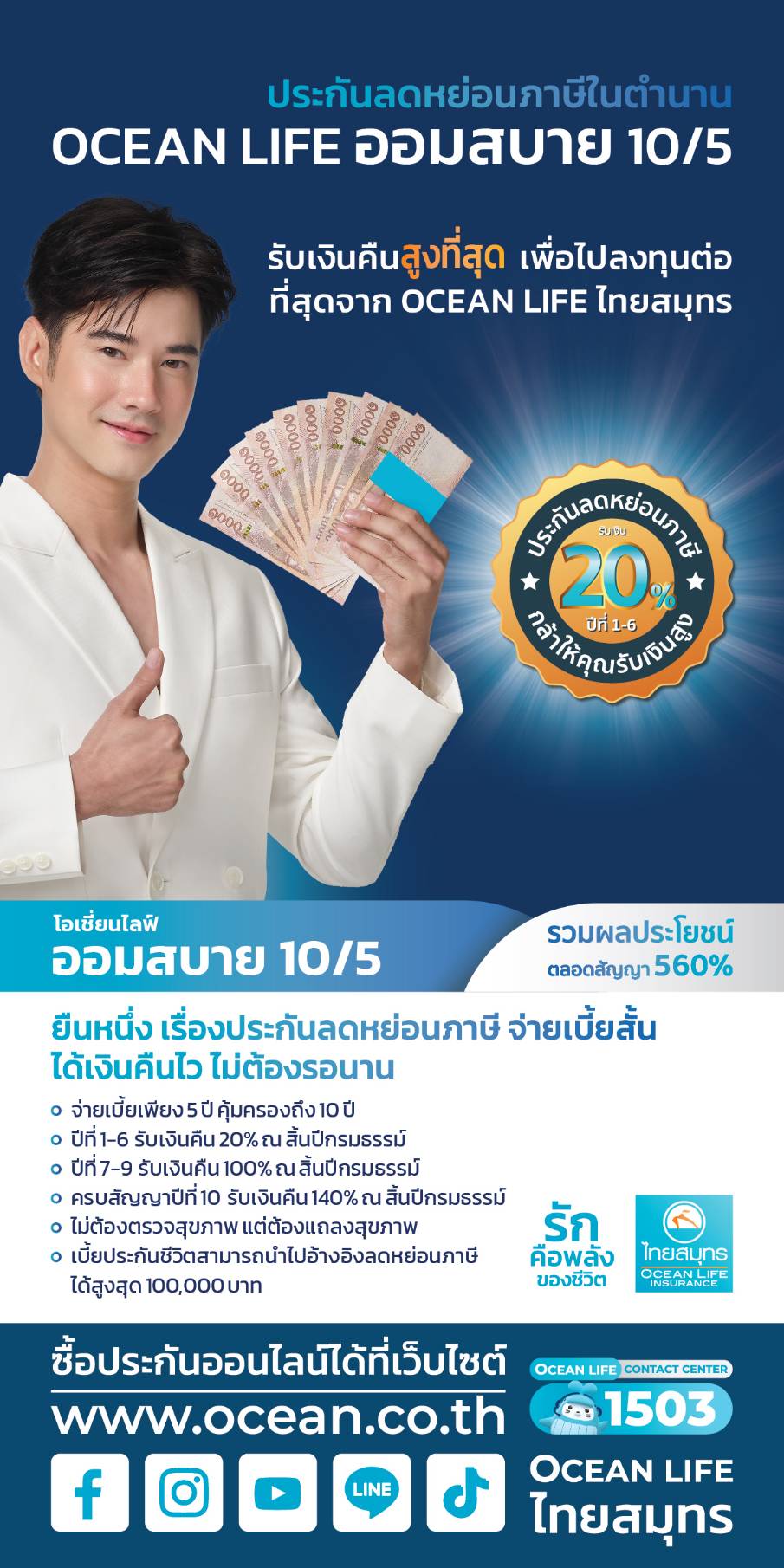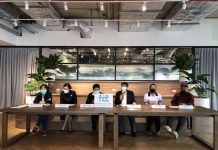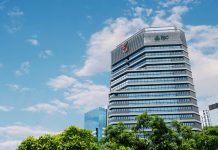SCB WEALTH จัดสัมมนา SCB First Investment Outlook 2022 : Navigating Through the Recession & Inflation Risk ให้แก่กลุ่มลูกค้า First เพื่อรับมือเงินเฟ้อและเศรษฐกิจถดถอย SCB CIO คาดเงินเฟ้อผ่านจุดสูงสุดแล้ว จาก Core Inflation ที่ปรับลดลง และกนง.ไม่ปรับขึ้นดอกเบี้ยแรง หวั่นปัญหาหนี้ครัวเรือนซ้ำเติมเศรษฐกิจ ด้าน Innovest X ประเมินเศรษฐกิจไทย ไตรมาส3-4 ขยายตัวไม่มาก GPD ปีนี้อยู่ที่ประมาณ 3% หุ้นกลุ่มที่มีแนวโน้มปรับตัวขึ้นดีในอนาคตรับอานิสงค์เปิดเมืองเปิดประเทศ ดอกเบี้ยและเงินเฟ้อปรับขึ้น ได้แก่ กลุ่มท่องเที่ยว ประกัน อิเล็กทรอนิกส์ อสังหาริมทรัพย์ ธนาคาร สื่อสาร ไฟแนนซ์ และ กลุ่ม Transformation เช่น รถไฟฟ้า ส่วน BlackRock และ Schroders เน้นธีมลงทุนด้านพลังงานสะอาด หุ้นกลุ่มยั่งยืน Circular Economy และ Health Care
นายศรชัย สุเนต์ตา ผู้ช่วยผู้จัดการใหญ่ ผู้บริหารสายงาน Investment Office and Product ธนาคารไทยพาณิชย์ จำกัด (มหาชน ) เปิดเผย ในงานสัมมนา “SCB First Investment Outlook 2022 : Navigating Through the Recession & Inflation Risks ” ให้แก่กลุ่มลูกค้า First ว่า อัตราเงินเฟ้อของสหรัฐยังอยู่ในระดับสูง เนื่องจาก ประชาชนเริ่มกลับใช้จ่ายมากขึ้นหลังสถานการณ์โควิดเริ่มคลี่คลาย ทำให้ภาคบริการและการผลิต ประสบปัญหาขาดแคลนแรงงาน จึงทำให้ค่าแรงปรับตัวสูงขึ้น ส่งผลต่อราคาสินค้าต่างๆปรับตัวสูงขึ้น และราคาพลังงานที่อยู่ในระดับสูง จากผลกระทบของสงครามรัสเซีย – ยูเครน และความต้องการใช้พลังงานที่สูงขึ้น แม้ช่วงเดือนกรกฎาคมที่ผ่านมา เงินเฟ้อของสหรัฐ เริ่มปรับตัวลง จากปัจจัยราคาอาหารและพลังงานที่ลดลง โดย SCB CIO คาดว่าเงินเฟ้อในสหรัฐผ่านจุดสูงสุดไปแล้ว แต่ไม่ได้ปรับลดลงเร็ว ซึ่งพิจารณาจาก Core inflation ประกอบด้วย ราคาที่อยู่อาศัย ค่าเช่าบ้าน ค่าขนส่ง หรือราคารถยนต์ เริ่มปรับตัวลดลงจากการที่สหรัฐใช้ยาแรงในการปรับขึ้นอัตราดอกเบี้ย ทำให้อุปสงค์ลดลงและคาดว่าเงินเฟ้อจะทยอยปรับตัวลดลงช้าๆ จนกลับมาอยู่ที่ระดับ2%ในปี 2024 ส่วนยุโรป ทิศทางเงินเฟ้อยังไม่ผ่านจุดสูงสุด เนื่องจากราคาพลังงานและอาหารที่ปรับตัวสูงขึ้น โดยได้รับผลกระทบจากสงครามรัสเซีย-ยูเครน ทั้งนี้ การขยายตัวทางเศรษฐกิจของยุโรป หากขาดแคลนพลังงาน จะส่งผลให้ โรงงานต่างๆผลิตสินค้าได้น้อยลง ภาคบริการก็อาจจะลดลง ดังนั้น ประเทศแถบยุโรปมีความเสี่ยงต่อการเข้าสู่ภาวะเศรษฐกิจถดถอยในปีหน้า
สำหรับเงินเฟ้อในประเทศไทย ยังไม่ผ่านจุดสูงสุด มีโอกาสเพิ่มขึ้นอย่างต่อเนื่อง ผ่านราคาสินค้าที่ปรับตัวสูงขึ้น จนพีคที่ไตรมาส 3 เศรษฐกิจไทยฟื้นช้ากว่าประเทศอื่น แต่ในปีนี้มีทิศทางการขยายตัวที่ดีขึ้น จากภาคการส่งออก และบริการที่นักท่องเที่ยวเริ่มกลับเข้ามาในประเทศไทย โดยคาดว่าในปีนี้จะมีนักท่องเที่ยว ประมาณ 10 ล้านคน และในปี 2024 จะมีประมาณ 40 ล้านคนเท่ากับช่วงก่อนโควิด ดังนั้น ภาคการท่องเที่ยวน่าจะมีแนวโน้มที่ดีขึ้นอย่างต่อเนื่อง ทั้งนี้ เงินเฟ้อไทยอาจจะปรับตัวลดลงเร็ว หากราคาอาหารและพลังงานลงมาสู่ระดับที่เหมาะสม
ปัจจุบันรายได้ของคนไทยติดลบเมื่อหักด้วยเงินเฟ้อ เพราะรายได้เพิ่มขึ้นช้ามาก ประชากรไทยประมาณ 15 ล้านครัวเรือน มีรายได้เมื่อหักด้วยเงินเฟ้อแล้วเพียงพอต่อรายจ่าย รายได้มากกว่ารายจ่าย แต่อีก 8 ล้านครัวเรือนที่หักลบด้วยเงินเฟ้อ มีรายจ่ายมากกว่ารายได้ ทำให้ประชาชนต้องนำเงินออมมาใช้ หนี้ภาคครัวเรือนของกลุ่ม 15 ล้านครัวเรือนมีหนี้ประมาณ 2.4 ล้านล้านบาท ส่วนกลุ่ม 8 ล้านครัวเรือนที่รายได้ไม่เพียงพอ มีหนี้ 2 ล้านล้าน ส่งผลให้ความเปราะบางของหนี้จะเพิ่มมากขึ้น เพราะรายได้ลดลง ซึ่งอาจจะกระทบต่อสถาบันการเงิน เพราะมีโอกาสเป็นหนี้ที่ไม่ก่อให้เกิดรายได้ จึงคาดว่าธนาคารแห่งประเทศไทย(ธปท.)จะไม่ปรับขึ้นอัตราดอกเบี้ยแรงเหมือนสหรัฐฯ ซึ่งสะท้อนจากการประชุมคณะกรรมการนโยบายการเงิน (กนง.) ครั้งที่ผ่านมา ปรับขึ้น 0.25% เนื่องจากความกังวลเรื่องหนี้ภาคครัวเรือน ดังนั้น จึงคาดว่า กนง.จะปรับขึ้นดอกเบี้ยนโยบาย 0.25 % ไปอีก 3 ครั้งในปีนี้ และหากเงินเฟ้อยังอยู่ในระดับสูง ปีหน้าอาจจะปรับขึ้นอีก 2 ครั้ง
นายสุกิจ อุดมศิริกุล กรรมการผู้จัดการ สายงานวิจัย บริษัทหลักทรัพย์ อินโนเวสท์ เอกซ์ จำกัด (Innovest X) เปิดเผยว่า การลงทุนในหุ้นเป็นสินทรัพย์ที่มีความเสี่ยง แต่มีสภาพคล่องสูง สามารถเลือกบริษัท หรือ Sector ได้ แม้ภาพรวมเศรษฐกิจโลก หรือภาวะตลาดอาจจะไม่ดี แต่ทุกครั้งที่มีหุ้นลง ก็จะมีหุ้นบางกลุ่มที่ปรับตัวขึ้น จึงเหมาะสำหรับการนำเงินบางส่วนมาลงทุนเพื่อกระจายความเสี่ยง โดยภาพรวมของตลาดหุ้นไทยในช่วงไตรมาส3 และ 4 เศรษฐกิจไทยไม่ได้ขยายตัวมากนัก จากตัวเลข GDP ที่คาดว่าจะอยู่ที่ประมาณ 3% และดัชนีตลาดหลักทรัพย์มองว่าอยู่ที่ประมาณ 1,650 จุด และกรอบการเคลื่อนไหวสามารถไปได้ถึง 1,750 จุด ซึ่งตลาดหุ้นไทยได้รับอานิสงค์ของเม็ดเงินจากต่างประเทศ ตั้งแต่ต้นปีเงินไหลเข้ามาลงทุน ประมาณ 150,000 ล้านบาท ทำให้ดัชนีปรับตัวขึ้น โดยภาพรวมตลาดหุ้นไทย ได้รับผลกระทบจากปัจจัยเสี่ยงต่างๆ ทั้งเรื่องสงครามรัสเซีย -ยูเครน ปัญหาเงินเฟ้อสูง การปรับขึ้นอัตราดอกเบี้ย และสิ่งแวดล้อม จากภัยแล้ง ซึ่งราคาหุ้นได้สะท้อนไปในช่วงไตรมาสที่ 3 แล้ว ที่มีการปรับตัวลงค่อนข้างลึกอยู่ในระดับ 1,500 จุด อาจเป็นช่วงที่ต่ำสุดของดัชนีหุ้นไทยในปีนี้ แม้ปัจจัยเสี่ยงยังคงมีเข้ามาอย่างต่อเนื่องก็ตาม ทั้งนี้ Sector ที่ราคาหุ้นปรับตัวเป็นบวก ได้แก่ กลุ่มท่องเที่ยว การแพทย์ และขนส่ง และคาดว่าผลประกอบการน่าจะดีขึ้นต่อเนื่องจากการเปิดเมือง ส่วน Sector ที่ได้รับปัจจัยเชิงบวกจากภาวะเงินเฟ้อ ได้แก่ กลุ่มสินค้าโภคภัณฑ์ อาหาร และพลังงาน Sector ที่ได้รับผลทางบวกจากการปรับขึ้นอัตราดอกเบี้ย ได้แก่ กลุ่มธนาคาร และ ประกัน
“ ทีมงานนักวิเคราะห์ของ InnovestX ได้ทำการวิเคราะห์หุ้น จาก SET 50 และSET 100 พบว่าแนวโน้มผลประกอบการ กลุ่มท่องเที่ยว ประกัน อิเล็กทรอนิกส์ อสังหาริมทรัพย์ ธนาคาร สื่อสาร ไฟแนนซ์ และโครงสร้างพื้นฐาน เช่น รถไฟฟ้า ส่วนใหญ่จะมีทิศทางของผลประกอบการในช่วงครึ่งปีหลังเป็นบวก กลุ่มเหล่านี้มีแนวโน้มที่จะปรับตัวได้ดี ”นายสุกิจ กล่าว
นายธณาพล อิทธินิธิภัค Director and Head of Thai Business ,BlackRock เปิดเผยว่า นักลงทุนอาจจะต้องอยู่กับความผันผวนด้านการลงทุนอีกพักใหญ่ ทั้งจากปัญหาเงินเฟ้อ การปรับขึ้นอัตราดอกเบี้ยของธนาคารทั่วโลก และ ความเสี่ยงจากภูมิรัฐศาสตร์ จากความขัดแย้งระหว่างประเทศ จึงแนะนำนักลงทุนปรับพอร์ตให้ Active มากขึ้นตามความผันผวน โดยลงทุนทั้งในหุ้น ตราสารหนี้ และสินทรัพย์ทางเลือก ที่สามารถเติบโตได้ในระยะยาว เนื่องจากไม่มีสินทรัพย์ใดที่ให้ผลตอบแทนที่ดีได้ตลอดทุกปี จึงควรที่จะกระจายการลงทุนให้เหมาะสมกับสินทรัพย์ที่หลากหลาย และต้องมีระยะเวลาในการถือครองสินทรัพย์ที่ไม่สั้นเกินไปเพื่อให้สินทรัพย์เหล่านั้น มีเวลาในการสร้างผลตอบแทนได้
ทั้งนี้ BlackRock แบ่งการลงทุนออกเป็น 2 ช่วงเวลา ได้แก่ กลยุทธ์การลงทุน 1 ปีขึ้นไป ( Strategy view ) และกลยุทธ์การลงทุน ประมาณ 3-6 เดือน (Tactical view) มองว่าการลงทุนในระยะยาวยัง Bull risk อยู่มาก ส่วนระยะสั้น และระยะกลาง ยังได้รับแรงกดดันจากเงินเฟ้อ ที่ส่งผลให้ต้นทุนบริษัทจดทะเบียนต่างๆสูงขึ้น และกระทบต่อผลประกอบการของบริษัท การลงทุนในระยะยาวคงแนะนำลงทุนในหุ้น เพราะเป็นตราสารที่ชนะเงินเฟ้อ และเติบโตได้ในระยะยาว ตราสารหนี้ โดยรวมได้รับผลกระทบจากดอกเบี้ยที่ปรับตัวขึ้น แต่ตราสารหนี้ภาคเอกชน (Corporate Bond ) บางบริษัทมีกระแสเงินสดดี จ่ายผลตอบแทนสูง โดยมีกว่า 50% ให้ผลตอบแทนมากกว่า 4 %ต่อปี ซึ่งจะช่วยลดความผันผวนของตลาดในช่วงระยะสั้นถึงกลางได้
สำหรับกลยุทธ์การลงทุน ยังคงให้น้ำหนักลงทุนในหุ้น เพราะสามารถเติบโตได้ดีในระยะยาว พันธบัตรรัฐบาล ลดน้ำหนักการลงทุนลง (underweight ) ทั้งในส่วนของ Strategy view และ Tactical view แต่ให้น้ำหนักกับ Corporate Bond ประเภท Investment Grade ส่วน Private Asset ให้เป็น Neutral นักลงทุนส่วนใหญ่ยัง Under invest เราเน้นให้เพิ่มสัดส่วนการลงทุนในกลุ่มนี้ เพื่อช่วยเพิ่มมูลค่าและลดความผันผวนของพอร์ตลงได้ ทั้งนี้ การจัดพอร์ตของ BlackRock จะมองไป 5 ปี ข้างหน้า นำตัวเลขความเสี่ยง 6 ปีย้อนหลัง มาประกอบรวมกัน แล้วสร้างเป็นโมเดลการจัดพอร์ต แบบเดิมคือในหุ้น 60% และตราสารหนี้ 40 % แต่ได้ปรับโมเดลใหม่ โดย ลดหุ้น ลดตราสารหนี้ แล้วเพิ่มสินทรัพย์ทางเลือก 30 % จากตัวอย่างนี้ ส่งผลให้ผลตอบแทนเพิ่มขึ้น และ ความเสี่ยงลดลง
ส่วนธีมการลงทุนจะเน้นในกลุ่มอุตสาหกรรม ดังนี้ 1)กลุ่ม ESG การก้าวสู่สังคมพลังงานสะอาดเช่น รถยนต์ EV ,Circular Economyการใช้ทรัพยากรธรรมชาติเท่าที่จำเป็นหรือการนำวัสดุกลับมาใช้ใหม่ 2)กลุ่ม Digital Transformation การเปลี่ยนถ่ายเข้าสู่เทคโนโลยียุคใหม่ ประเทศต่างๆ แข่งขันกันพัฒนาเทคโนโลยีเพื่อขึ้นมาเป็นผู้นำเศรษฐกิจโลก เช่น การพัฒนาระบบขนส่งในอนาคตที่เชื่อมโยงอุปกรณ์ Electronic ต่างๆเข้าด้วยกัน และ 3 ) Strong Pricing Power การลงทุนในบริษัทที่ขายสินค้าที่จำเป็น บริษัทที่สามารถส่งผ่านต้นทุนไปให้ผู้บริโภคได้โดยที่ไม่กระทบกับยอดขาย เช่น อุตสาหกรรม Health care มีปรับตัวลดลงน้อยกว่ากลุ่มอุตสาหกรรมอื่นๆ ช่วยลดความผันผวนในพอร์ตลงทุนได้ และยังมีนโยบายต่างๆออกมาสนับสนุน ในช่วง5 ปีที่ผ่านมาสหรัฐ เพิ่มงบลงทุนใน Healthcare จาก3 ล้านล้านเหรียญ เป็น 4 ล้านล้านเหรียญ ญี่ปุ่นเพิ่มจาก 4 แสน เป็น 6 แสนล้านเหรียญ ยูโรเพิ่มจาก1.3 ล้านล้านเหรียญ เป็น 1.4 ล้านล้านเหรียญ โดยรวมปีที่แล้วงบที่ลงทุน ใน Healthcare สูงถึง 9 ล้านล้านเหรียญสหรัฐ ซึ่งเป็นสิ่งที่หนุนให้อุตสาหกรรม Healthcare มีการเติบโต นอกจากนี้ การเปลี่ยนแปลงเข้าสู่สังคมผู้สูงอายุ ประชากรโลกประมาณ 7,000 ล้านคน ปัจจุบัน1 ใน6 ของประชากรโลกอายุเกิน 60 ปี หรือประมาณกว่า 1,000 ล้านคน กลุ่มนี้จะเพิ่มฐานคนใช้บริการในกลุ่ม Healthcare มากขึ้น
นายอาทิตย์ ทองเจริญ Head of Thailand Business , Schroders Investment Management ( Singapore) Ltd. เปิดเผยว่า มุมมองการลงทุนครึ่งปีหลังไปจนถึงปีหน้า มีความกังวลเรื่องคือเงินเฟ้อ และภาวะเศรษฐกิจถดถอย (Recession)จากตัวเลขเงินเฟ้อล่าสุดในเดือนกรกฎาคม ค่อนข้างที่จะชะลอลง ทำให้นักลงทุนเริ่มมีความคลายความกังวล แต่ไปดูตัวเลขเชิงลึก เงินเฟ้อที่ชะลอตัวลงมาจากราคาพลังงานที่ลดลง ในขณะที่ราคาอาหาร ต้นทุนสินค้า และบริการ ยังชะลอตัวลงไม่มากนัก ถ้าตัดราคาพลังงานออก พบว่า เงินเฟ้อของเดือนกรกฎาคม ยังสูงขึ้นจากเดือนมิถุนายน ประมาณ 0.4%ดังนั้น เงินเฟ้อ อาจจะยังไม่ได้ชะลอตัวลง และปัจจัยที่สำคัญของต้นทุนเงินเฟ้อ คือราคาสินค้า และบริการ ส่วนค่าแรง ยังไม่ได้ปรับลดลงมากนัก จึงมองว่าอัตราเงินเฟ้อยังคงอยู่ในระดับสูง และน่าจะยังสูงต่อเนื่อง จึงยังคงมีความเสี่ยงการเกิดภาวะเศรษฐกิจถดถอย
พอร์ตการลงทุนของ Schroders จะเป็นการจัดพอร์ตแบบตั้งรับ ในกรณีที่มีความเสี่ยงเข้ามา พอร์ตลงทุนจะไม่ได้รับผลกระทบมากนัก แต่ในขณะเดียวกันหากไม่เกิด Recession ก็ยังสามารถที่จะปรับพอร์ต ให้ตอบสนองกับอัตราการเติบโตของเศรษฐกิจได้ ปัจจุบันนี้ ลดน้ำหนักการลงทุนในหุ้น (Underweight) เพราะกังวลต่อภาวะเศรษฐกิจที่ผันผวน แม้ไตรมาสที่ผ่านมาผลประกอบการของบริษัทจดทะเบียนจะออกมาค่อนข้างดี แต่เนื่องจากอัตราเงินเฟ้อที่เพิ่มขึ้น ส่งผลให้ต้นทุนสูงขึ้น จึงคาดว่าประกอบการในไตรมาส 3 – 4 น่าจะเริ่มชะลอตัวลง อย่างไรก็ตาม เมื่อเทียบกับภูมิภาคอื่นหุ้นสหรัฐและจีน ยังคงมีความน่าสนใจมาก ส่วนตราสารหนี้ภาครัฐ มีการปรับลดน้ำหนักการลงทุนเช่นกัน เนื่องจากราคาสูง และมีอายุตราสารที่ยาว เมื่อดอกเบี้ยขึ้นจะได้รับผลกระทบในเชิงลบค่อนข้างมาก โดยเฉพาะเมื่ออัตราเงินเฟ้อยังคงอยู่ในระดับสูงที่ทำให้ธนาคารกลางสหรัฐยังคงต้องปรับเพิ่มอัตราดอกเบี้ย แต่ให้น้ำหนักการลงทุนในตราสารหนี้ภาคเอกชนสหรัฐ ประเภท Investment grade และตราสารหนี้ของตลาดเกิดใหม่ ที่เป็นสกุลเงินดอลล่าร์ เพราะเมื่อเทียบกับตราสารหนี้ภาครัฐของต่างประเทศแล้ว ระดับราคาของตราสารหนี้เอกชนยังคงอยู่ในระดับที่น่าสนใจ ส่วนสินค้าโภคภัณฑ์ ให้น้ำหนัก ทองคำ สามารถป้องกันความเสี่ยงในภาวะที่เกิด Recession ได้ นอกจากนี้ พิจารณาเลือกสินทรัพย์ประเภท Private Asset เพราะช่วยลดความผันผวนของพอร์ตได้ เน้นกลุ่มที่เกี่ยวข้องกับการบริโภค และ Healthcare ส่วน Private Dept หรือหุ้นเอกชนนอกตลาด เลือกกลุ่มที่ได้รับดอกเบี้ยในระดับที่เป็นอัตราลอยตัว กลุ่มอสังหาริมทรัพย์ ที่มีกระแสเงินสดดี
สำหรับธีมการลงทุน Schroders ให้ความสำคัญกับการลงทุนในกลุ่มอุตสาหกรรมที่ตอบสนองและใส่ใจต่อสังคมที่เกี่ยวข้องกับสิ่งแวดล้อม และการทำความดี โดยเลือกลงทุนในกองทุนที่ยั่งยืน (Sustainability) ซึ่งระยะยาวมีโอกาสได้รับผลตอบแทนที่สูง โดยมองข้ามความผันผวนระยะสั้น ธีมการลงทุนที่น่าสนใจ 5 แบบประกอบด้วย 1) Clean energy หรือ พลังงานสะอาด จะได้รับความสนใจเนื่องจากว่าทุกคน รวมถึงภาครัฐให้ความใส่ใจเรื่องของการลดการปล่อยก๊าซเรือนกระจก กลุ่มธุรกิจที่เกี่ยวข้องกับพลังงานสะอาด จะมีเม็ดเงินไหลเข้ามาและส่งผลในเชิงบวกระยะยาวมากขึ้น 2) กลุ่มที่เกี่ยวข้องกับการใช้พลังงานแบบมีประสิทธิภาพ เช่น วัสดุอุปกรณ์ก่อสร้างที่ช่วยลดการใช้พลังงาน หรือหลอดประหยัดพลังงาน แผงพลังงานไฟฟ้า เป็นต้น 3)กลุ่มที่เกี่ยวข้องกับสิ่งแวดล้อม เช่น การจัดการทรัพยากรน้ำ การกำจัดของเสีย ธุรกิจที่เกี่ยวข้องกับ Waste management ของรีไซเคิล์ต่างๆ น่าจะได้รับผลประโยชน์ในระยะยาวได้มากขึ้น 4) Low carbon leaders เป็นกลุ่มที่มีการปล่อยก๊าซเรือนกระจกในระดับต่ำ และ 5 ) Sustainnable Transport ระบบการขนส่งที่ใช้พลังงานสะอาด เช่นรถยนต์ไฟฟ้า หรือ รถไฟไฟฟ้า เป็นต้น กลุ่มนี้จะไม่ได้มุ่งเน้นไปที่ผู้ผลิตรถยนต์ไฟฟ้าเท่านั้น แต่จะเน้นลงทุนในองค์ประกอบ ที่ใช้เป็นวัตถุในการผลิตรถยนต์ไฟฟ้า เช่น แผงวงจรสำหรับแบตเตอรี่รถยนต์ไฟฟ้า เป็นต้น
SCB WEALTH holds ‘SCB First Investment Outlook 2022: Navigating Through Recession & Inflation Risk’ seminar offering investment insights, with Innovest X recommending stocks gaining from country reopening, while BlackRock & Schroders favor ESG stocks
SCB WEALTH recently held a seminar for SCB FIRST clients titled “SCB First Investment Outlook 2022: Navigating Through Recession & Inflation Risk”, during which they shared their insights on coping with inflation and economic downturn. The SCB CIO believes inflation has peaked, as core inflation has been falling and the MPC hasn’t been aggressively hiking interest rates out of worry for the impact of consumer debt on the economy. Based on the expectation that the Thai economy will not grow significantly in the third and fourth quarters and given that this year’s GDP will be around 3%, Innovest X recommends stocks with growth potential that will benefit from a reopening of the country, higher interest rates, and increasing inflation. Travel, electronics, real estate, banking, communications, finance, and innovative technologies like electric vehicles are just some of the industries whose stocks belong to these categories. BlackRock and Schroders, meanwhile, favor stocks in the themes of clean energy, sustainability, a circular economy, and healthcare.
At the recent “SCB First Investment Outlook 2022: Navigating Through Recession & Inflation Risk” seminar for SCB FIRST customers Siam Commercial Bank Chief Investment Office and Product Function Executive Vice President Sornchai Suneta noted that the US inflation rate remained high as people began to increase their spending as the pandemic situation improved. This situation caused a shortage of workers in the service and manufacturing sectors, leading to rising wages. Although the US inflation rate has been marginally lower in July due to falling food and energy prices, the impact of the Russia-Ukraine war and increased demands for energy caused prices for a variety of items to soar, as did energy costs. The SCB CIO anticipates that U.S. inflation will have passed its peak but will not decline rapidly. The forecast is based on core inflation, which includes home prices, house rent, transportation costs, and automobile prices, which began to drop as a result of interest rate hikes. With declining demand, inflation is predicted to revert to 2% in 2024 after a sluggish decline. Due to growing energy and food prices resulting from the Russia – Ukraine conflict, inflation in Europe has not yet peaked. With Europe’s expanding economy, the energy deficit will trigger industries to produce fewer goods. The service sector may also shrink next year, putting European nations at risk of entering a recession.
Inflation in Thailand has not yet reached its high, and there is a probability that it may continue to rise due to rising product prices until the third quarter. Thai economic recovery lagged behind that of other nations, but this year the export and service industries are headed in a more promising direction of growth, thanks to the return of tourists to Thailand. It is expected there will be approximately 10 million tourists in 2022 and 40 million in 2024, the same number as before the pandemic. Consequently, the tourism industry is likely to continue to grow. Thai inflation may decline faster if food and energy prices drop to a manageable level.
Currently, after deducting inflation, income in Thailand is negative since income growth has been so sluggish. After deducting inflation, the income of approximately 15 million Thai households surpasses their expenditures, whereas 8 million households have higher expenses than income, requiring them to spend their savings. The debts of the 15 million families totaled around 2.4 trillion baht, whereas the 8 million households with insufficient incomes totaled 2 trillion baht, resulting in an increase in debt vulnerability. The issue may impact financial institutions as the likelihood of non-performing loans rises. As a result, it is anticipated that the Bank of Thailand (BOT) will not hike interest rates as aggressively as the United States, judging from the previous meeting of the Monetary Policy Committee (MPC), which raised the rate by 0.25 percentage points due to worries over household debt. If inflation remains strong, it is anticipated that the MPC will raise the policy rate by 0.25 percentage points three times this year and twice more next year.
Innovest X Securities Co., Ltd. Chief Research Officer Sukit Udomsirikul noted that stock investing is risky, but highly liquid. Investors select firms or industries that are favorable at different times. Despite the possibility that the global economy or market conditions as a whole are unfavorable and the stock market is sinking, some stocks will thrive. Therefore, it is an appropriate investment for risk diversification. During the third and fourth quarters, the Thai stock market is not expected to rise significantly relative to GDP growth, anticipated to be about 3%, and the SET index is expected to stand around 1,650 points within a range reaching 1,750 points. Since the beginning of the year, roughly 150 billion baht of foreign capital has been invested in the Thai stock market, prompting the index to climb. Overall, the Thai stock market has been impacted by numerous risk factors, including the Russia–Ukraine war, high inflation, an increase in interest rates and environmental repercussions from s drought. In the third quarter, share prices have already made a significant decline to the level of 1,500 points, which may be the SET index’s lowest point for this year. Despite the continued emergence of risk factors, the tourism, medical, and transportation sectors have favorable prospects, and earnings are likely to continue to rise as the economy reopens. Commodities, food, and energy are industries that benefit from inflation, while banking and insurance are industries that profit from interest rate increases.
According to research conducted by the analysts at InnovestX, the travel, insurance, electronics, real estate, banking, telecommunications, finance, and infrastructure sectors, including electric trains, are projected to show favorable earnings trends in the second half of the year. Adaptability is a strength in these segments,” concluded Sukit.
Thanapol Ittinithipak, Director and Head of Thai Business for BlackRock, revealed that investors may have to endure market volatility for some time due to inflation and global interest rate hikes as well as geopolitical risks associated with international conflicts. As a result, investors are advised to adapt their portfolios to be more active in response to market volatility by investing in stocks, bonds, and alternatives with the potential for long-term growth, as there is no asset that provides constant satisfactory returns. Consequently, investments should be diversified to accommodate a variety of assets. In addition, there must be an adequate holding period for these assets to create returns.
In the face of uncertainty, BlackRock strategic View, which focuses on long-term goals with a duration of one year or more, and the more active Tactical View, which responds to market conditions in the next three to six months have concluded that although short to medium term companies in general are pressured by higher cost of running their business and may have negative impact at the bottom line, over a long term, stocks are still recommended as they can overcome inflation and grow over time. On the fixed income side, higher interest rates have an impact on bonds as a whole, however, some companies with strong cash flow, with around half of them, can generate yields of greater than 4% yearlyThese bonds aid in reducing the market’s short to medium term volatility.
Due to the potential for long-term growth, the ideal investment strategy should favor equity investments while reducing the weight of government bonds in both the Strategic and Tactical views to place greater focus on investment-grade corporate bonds. Private assets remain neutral, however, the majority of investors have underinvested in this sector. Therefore, Blackrock recommends to add exposure in this segment in order to increase value and reduce volatility. A BlackRock’s model portfolio utilizing historical risk and forward looking views have shown the portfolilo incorporating some alternative assets, at 30% in example, can enhanced overall risk adjusted return of investors’ portfolio.
The following industries will be the focus of investment themes: 1) An ESG Group supporting the transition into a clean energy society, such as electric vehicles, a circular economy, and the use of natural resources as needed; 2) A Digital Transformation Group evolving into a new era of technology as countries compete to develop technology to become leaders in the global economy, such as the development of future transportation systems linked with various electronic devices; and 3) A Strong Pricing Power Group that invests in companies that sell essential products or can pass costs on to consumers without having significant impact to sales, such as the health care industry, which tend to overperform during market downturn. This can help reduce the volatility of investment portfolios with supports by government policies. Data has shown in the last five years, the United States has increased its investment budget in healthcare from USD 3 trillion to USD 4 trillion, Japan from USD 400 billion to USD 600 billion, and Europe from USD 1.3 trillion to USD 1.4 trillion. Last year, the total spending allocated to healthcare alone hit USD 9 trillion. This contributes to the expansion of the healthcare industry. In term of demography, Over one-sixth of the world’s population, or approximately one billion people, are over 60 years old. This group will expand the healthcare group’s user base which is positive to the industry.
Arthit Thongcharoen, Head of Thailand Business for Schroders Investment Management (Singapore) Ltd. believed that that inflation and possible recession are the 2 main concerns for the second half of the year to next year. While the most recent inflation figure released in July indicated that inflation has slowed and investors are beginning to feel relieved, however, a slowdown in inflation was mainly due to falling energy prices, while food prices and the cost of products and services have not decreased significantly. If energy prices were excluded, July inflation was still 0.4% higher than in June, indicating that inflation is still the main issues. The price of goods and services is a significant driver of inflation, and part of these are wages which has not yet declined. As such, inflation is likely to remain elevated with higher possibilities of a recession.
Schroders has adopted a defensive portfolio strategy during this period so that in case of actual recession, the impact will be limited. However, if there is no recession, the portfolio can be adjusted to more aggressive stance to reflect the economic expansion. Schroders’ current asset allocation has been underweighted in equity even though the latest listed companies’ earnings were pretty solid. However, due to rising inflation and operating cost, it is corporate earnings may begin to stall in coming quarters. However, when compared to other regions, U.S. and Chinese stocks continue to be attractive. Government bonds is also adjusted to underweight due to expansive valuation and long duration which will be hurt from rising interest rates especially if inflation remains elevated that the Federal Reserve must continue to hike rates. Schroders prefers investment-grade U.S. dollar bonds issued by corporations in the United States and emerging markets. US corporate and emerging market bonds maintained an attractive price level relative to foreign government bonds. Regarding commodities, gold can be viewed as an anti-recession hedge. To reduce the portfolio’s volatility, investors may also consider private equity, focusing on consumer and healthcare-related sectors. For private debt, a floating rate debt seems to be attractive. For real-estate, investors may focus the investment on cash flow generating sectors.
Schroders emphasis the importance of sustainable investment, environmental friendly, socially responsible, and good corporate governance companies which have the potential for long-term growth despite the short-term volatility. There are five attractive investment themes, including 1) Clean energy, which will attract the interest of the general public, including the government sector, due to its role in reducing greenhouse gas emissions; 2) Segments related to energy efficiency, such as energy-saver construction materials that reduce energy consumption, solar grids; 3) Segments related to the environment friendly, including water resource management, waste management, which will benefit from circular economy; 4) Low carbon leaders companies which that has low level of carbon emissions; and 5) Sustainable transportation, which includes renewable energy transportation systems, such as electric vehicles and electronic public transport systems. Investment in this group will not be concentrated only in electric vehicle manufacturers, but also in components utilized in the production of electric vehicles, such as semiconductors producers for electric vehicle batteries, etc.



